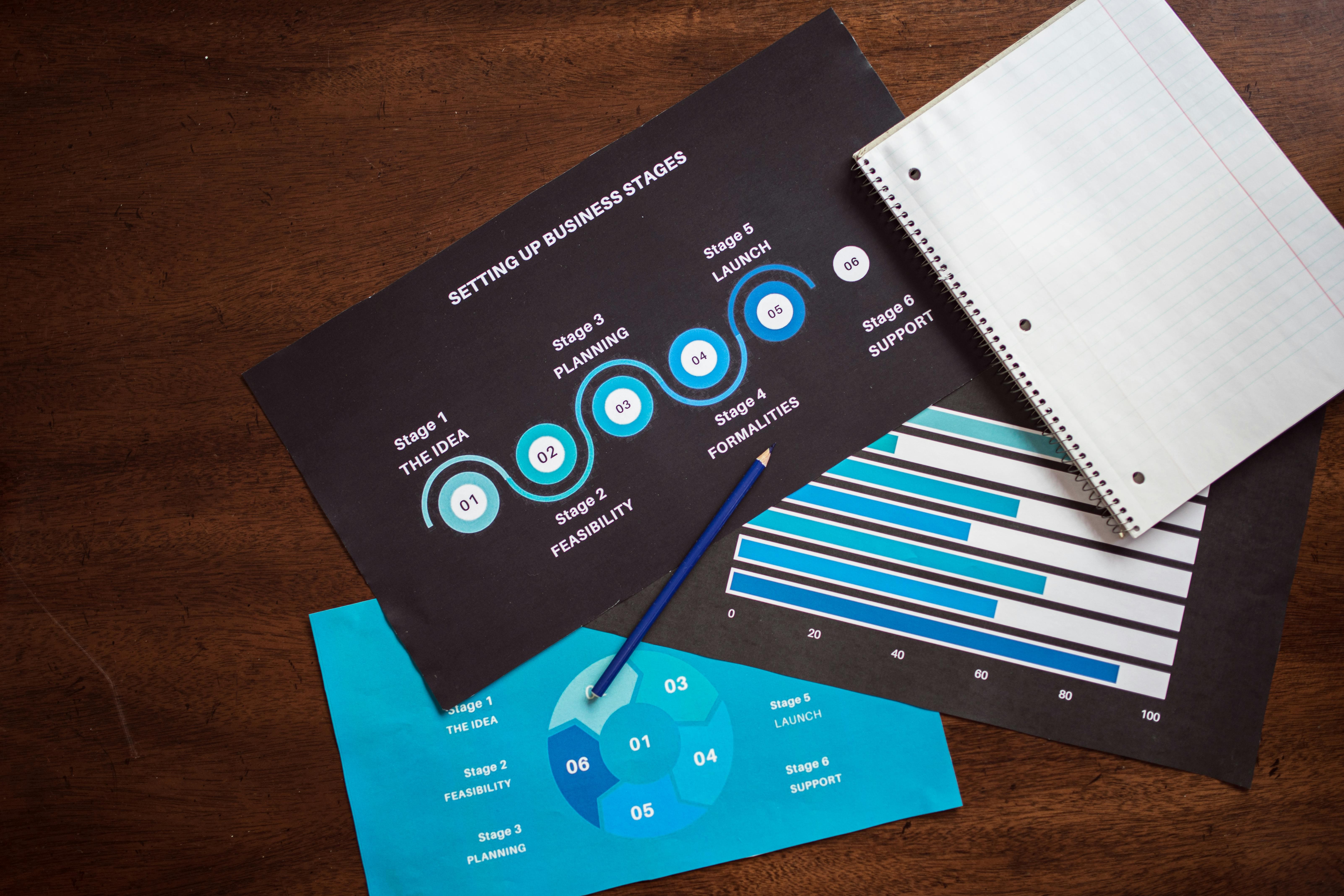for a Fulfilling Lifeworld that constantly evolves, the most significant investment you can make is in yourself. Self-development, often interchangeably called personal growth or self-improvement, is the lifelong process of assessing your skills and qualities, considering your aims in life, and setting goals to realize and maximize your potential. It's about consciously working on yourself to become a better, more capable, and more fulfilled individual.
delve deep into the essence of self-development, exploring why it's crucial, its core pillars, a step-by-step process to embark on your journey, practical tools, common challenges, and strategies for sustained growth. Prepare to unlock the blueprint for a life lived with purpose, passion, and profound satisfaction.
Everlandscape, standing still is, in essence, moving backward. Self-development isn't a luxury; it's a necessity for thriving in all aspects of life. Here's why:
- Enhanced Personal Effectiveness: By identifying and strengthening your weaknesses while leveraging your strengths, you become more efficient and capable in your daily tasks and long-term goals.
- Increased Resilience: Life is full of ups and downs. Personal growth equips you with the mental and emotional fortitude to navigate challenges, bounce back from setbacks, and adapt to change with greater ease.
- Improved Relationships: As you understand yourself better, you develop greater empathy, communication skills, and emotional intelligence, leading to more meaningful and harmonious relationships with others.
- Career Advancement: Continuous learning and skill acquisition make you more valuable in the workplace, opening doors to new opportunities, promotions, and a more satisfying career path.
Sense of Purpose and Fulfillment: Self-development helps you clarify your values, identify your passions, and align your actions with your true self, leading to a profound sense of meaning and satisfaction.Confidence and Self-Esteem: As you achieve your personal growth goals, no matter how small, your belief in your abilities grows, fostering a healthier self-image and greater confidence.
- Better Mental and Physical Health: Practices like mindfulness, stress management, and healthy habit formation, which are central to self-development, contribute significantly to overall well-being.
Pillars of Self-Developmenttouching upon various facets of your being. While interconnected, these pillars provide a useful framework for understanding and targeting specific areas for growth.
Well-beingthrough which you perceive the world. A growth mindset, as popularized by Carol Dweck, believes that abilities can be developed through dedication and hard work. Cultivating a positive and resilient mindset is fundamental.
- Growth Mindset: Embrace challenges, persist in the face of setbacks, see effort as a path to mastery, learn from criticism, and find lessons in the success of others.
- Positive Self-Talk: Challenge negative internal dialogues and replace them with encouraging, constructive thoughts.
- Stress Management: Learn techniques like deep breathing, meditation, or spending time in nature to manage stress effectively.
- Emotional Regulation: Understand and manage your emotions, preventing them from controlling your reactions.
focuses on expanding your capabilities, both professionally and personally. It's about becoming more competent and adaptable.
abilities that can be measured, like coding, graphic design, data analysis, or a foreign language.
Skillsless tangible, but crucial for success. Examples include:
- Communication (verbal and written)
- Leadership
- Problem-solving
- Critical thinking
- Teamwork
- Adaptability
here. Never stop seeking new knowledge and refining your skills.
Healthfor your mind and spirit. Neglecting physical health can severely impede your self-development journey.
- Nutrition: Fuel your body with wholesome, nutrient-rich foods.
- Exercise: Regular physical activity boosts energy, reduces stress, and improves cognitive function.
- Sleep: Prioritize sufficient, quality sleep for mental clarity, mood regulation, and physical recovery.
Simple yet often overlooked, adequate water intake is vital for all bodily functions.is the ability to understand, use, and manage your own emotions in positive ways to relieve stress, communicate effectively, empathize with others, overcome challenges, and defuse conflict. It comprises:
- Self-Awareness: Recognizing your own emotions and their effects.
- Self-Regulation: Controlling disruptive impulses and moods.
- Motivation: Pursuing goals with energy and persistence.
- Empathy: Understanding the emotional makeup of other people.
- Social Skills: Proficiency in managing relationships and building networks.
are social creatures. The quality of your relationships significantly impacts your well-being and growth.
- Effective Communication: Learn to listen actively, express yourself clearly, and resolve conflicts constructively.
- Networking: Build a diverse network of contacts for support, collaboration, and learning.
- Boundary Setting: Understand and communicate your limits to maintain healthy relationships and protect your energy.
- Contribution: Engage in acts of service or community involvement to foster a sense of connection and purpose.
your purpose gives direction and motivation to your self-development efforts. It's about understanding what truly matters to you and aligning your life with those values.
- Values Clarification: Identify your core values (e.g., honesty, creativity, compassion, freedom).
- Passion Discovery: Explore activities that ignite your enthusiasm and bring you joy.
- Vision Setting: Envision your ideal future and work backward to set goals that lead you there.
A Step-by-Step Guideself-development journey can feel overwhelming without a clear roadmap. Here's a structured approach to guide you:
can grow, you need to know where you stand. This involves honest introspection.
- Reflect: What are your strengths? What are your weaknesses? What brings you joy? What drains your energy?
- Feedback: Ask trusted friends, family, or colleagues for constructive feedback on your perceived strengths and areas for improvement.
- Tools: Consider personality tests (e.g., Myers-Briggs, Enneagram), strengths finders (e.g., CliftonStrengths), or journaling to gain deeper insights.
Setting: Define Your Destinationknow where you are, decide where you want to go. Goals provide direction and motivation.
Goals Framework
- Specific: Clearly defined, not vague.
- Measurable: Quantifiable, so you can track progress.
- Achievable: Realistic and attainable.
- Relevant: Aligned with your values and overall life vision.
- Time-bound: Have a deadline to create urgency.
want to be healthier," a SMART goal would be "I will exercise for 30 minutes, 4 times a week, and eat five servings of vegetables daily for the next three months to improve my cardiovascular health."
your goals into smaller, manageable steps. This creates a clear path forward.
- Action Plan: List specific actions required to achieve each goal.
- Resources: Identify what resources you'll need (books, courses, mentors, time, money).
- Timeline: Assign deadlines to each step.
- Contingency: Anticipate potential obstacles and plan how to overcome them.
where the rubber meets the road. Consistent effort is key.
- Start Small: Don't wait for perfection. Take the first step, no matter how tiny.
- Consistency: Regular, even small, actions accumulate into significant progress over time.
Develop the habit of showing up for yourself, even when motivation wanes.Reflectionstay on course and learn from your experiences.
- Monitor: Keep a journal, use a habit tracker, or simply note your progress.
- Evaluate: Are your strategies working? What could be done differently?
- Celebrate: Acknowledge and celebrate small wins to maintain motivation.
& PersistenceBe prepared to adjust your course.
Life happens. Be willing to modify your plans as circumstances change.When faced with obstacles, analyze, strategize, and try new approaches.
- Resilience: Don't give up after setbacks. Learn from them and keep moving forward.
Growthpractices can accelerate your self-development journey:
courses, podcasts, and documentaries are invaluable resources for expanding your knowledge and perspective. Commit to reading at least one non-fiction book per month related to your growth areas.
practices enhance self-awareness, reduce stress, and improve focus. Even 5-10 minutes daily can make a significant difference. Apps like Headspace or Calm can guide beginners.
powerful tool for self-reflection, emotional processing, and clarifying thoughts. Try different journaling techniques:
- Gratitude Journal: List things you're grateful for daily.
- Freewriting: Write continuously without stopping for a set time.
Journaling: Combine task lists, daily logs, and notes in one place.Journaling: Use specific questions to guide your reflection.from someone who has achieved what you aspire to can provide invaluable guidance, accelerate your learning, and offer different perspectives. A coach can help you identify blind spots and hold you accountable.
truly master a skill, you need deliberate practice—focused effort on improving specific aspects of your performance, often with feedback.
& Productivity Techniquestime frees up space for personal growth activities.
in focused 25-minute intervals, followed by short breaks. This boosts concentration and prevents burnout.
Matriximportance to prioritize effectively:
- Urgent & Important: Do first.
- Not Urgent & Important: Schedule.
- Urgent & Not Important: Delegate.
- Not Urgent & Not Important: Eliminate.
the compound interest of self-development. Small, consistent actions lead to significant results over time. Use frameworks like "Atomic Habits" by James Clear:
Make it Obvious: Set cues (e.g., put running shoes by the door)Pair with something you enjoy (e.g., listen to a podcast while running)Reduce friction (e.g., prepare healthy snacks in advance)Satisfying: Reward yourself (e.g.,
Leave a comment
Your email address will not be published. Required fields are marked *



